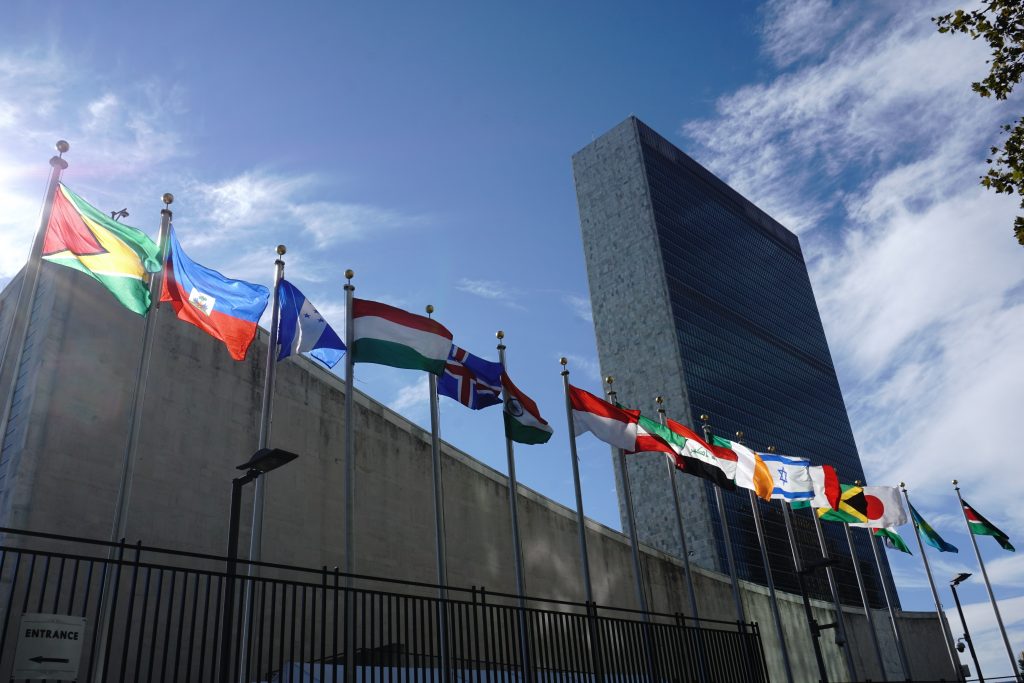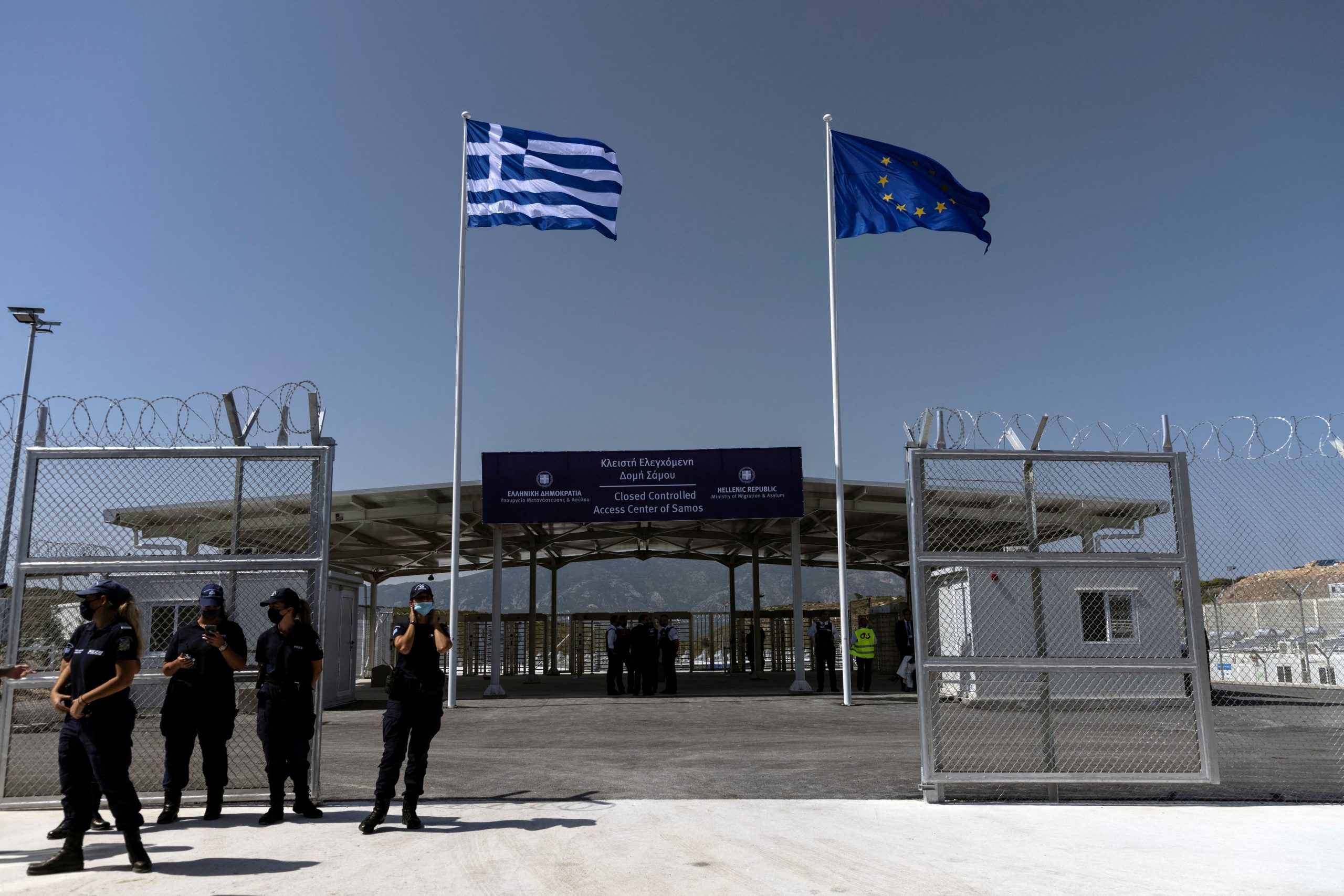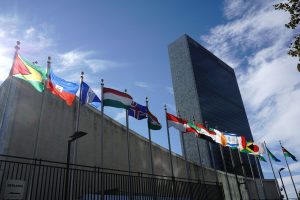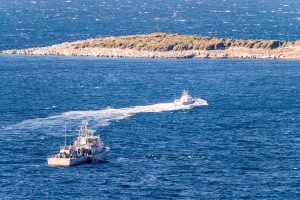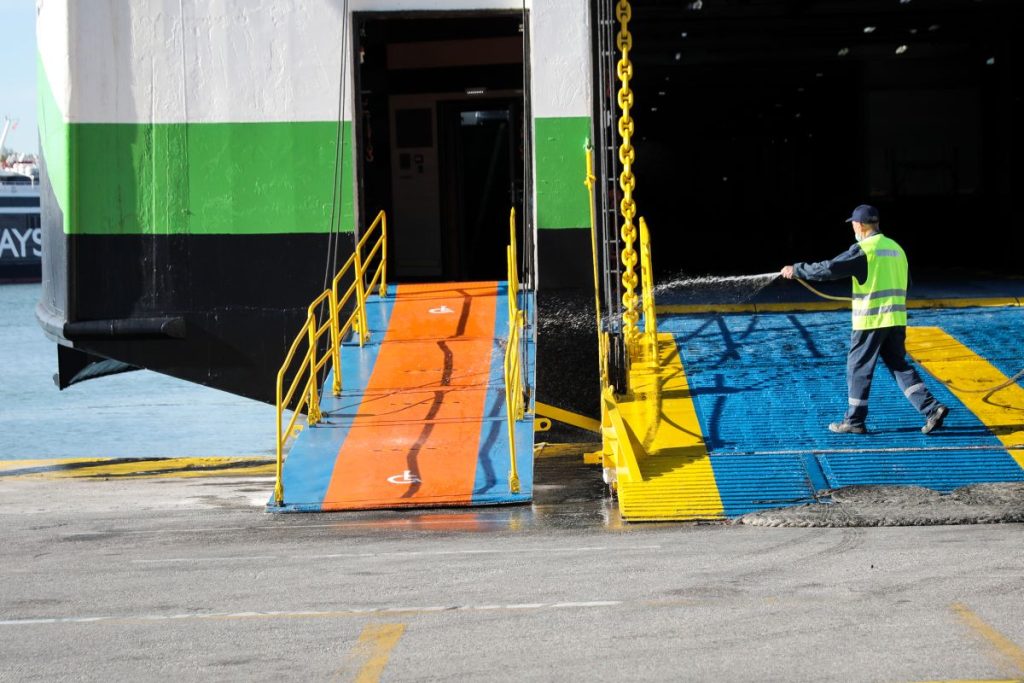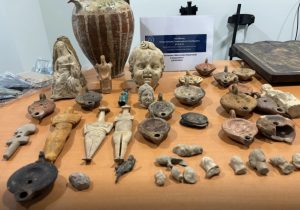The UN Special Rapporteur on trafficking in persons has raised stark concerns about the treatment of trafficking victims in the Closed Control Access Center for asylum seekers on Samos Island, Greece.
In a letter to the government of Greece, she detailed systemic failures in identifying and protecting trafficking victims and inadequate conditions broadly.
The Closed Control Access Center on Samos was opened in 2021, the first of five new camps to be built with a bundle of 276 million euros in EU funds, meant to be an improvement from the sprawling tent cities asylum-seekers had been forced to stay in previously. Upon opening, the camp was praised by Prime Minister Kyriakos Mitsotakis as “ a modern and humane facility which is, first and foremost, safe.”
The facility currently holds over 5,000 people though it has a reported 3,000 person capacity. The Special Rapporteur noted that the center has a “prison-like architecture and management” which restricts freedom of movement, and provides insufficient medical, psychological, and material support.
Specifically in the report the Special Rapporteur notes that in 2022, 2,170 asylum seekers arrived on Samos, including 285 that were identified as potential trafficking victims. However, among 14 identified survivors in the Special Rapporteur’s letter (mainly young women from Western and Central Africa), only four were officially recognized as victims of trafficking.
These women had suffered sexual violence, forced labor, or female genital mutilation during their journeys. Despite clear signs of having suffered trafficking, most were not properly identified as vulnerable and none were properly supported.
Survivors reported inhumane living conditions in the center in Samos, including insufficient food, lack of medical care, and inadequate psychological support. A single mother described being forced to wear blood-stained clothes for weeks postpartum, left without any support, and thus afraid to leave her room in the housing container.
The letter argues Greece needs to improve victim identification, enhance asylum evaluations, and provide supportive environments for trafficking survivors. The Special Rapporteur stated that current surveillance and security practices in the center on Samos– which include regular checkpoints, fences, turnstiles, x-ray machines as well as ID card and fingerprint scans–fail to meet survivor needs and additionally risk re-traumatizing people.
This is not the first critique from the UN regarding Greece’s reception and housing of migrants. Just in October The United Nations Human Rights Committee critiqued Greece regarding the state of migrant reception and detention centers.
Last year Al Jazeera reported that European Commission representatives complained to EU officials that the Closed Control Access Center on Samos didn’t provide adequate care or supervision of unaccompanied minors, that there were a host of hygiene issues across the camp, no permanent doctors, and regular cuts to the water supply.
In December 2023, Amnesty International described the situation in the Samos closed center as a “dystopian nightmare”, detailing an over-surveilled and securitized camp that simultaneously lacks basic infrastructure. They stated that “In the pretext of conducting identification procedures, the authorities systematically subject people seeking asylum to unlawful and arbitrary detention.”
The Greek government has not yet commented on the UN Special Rapporteur’s letter.
